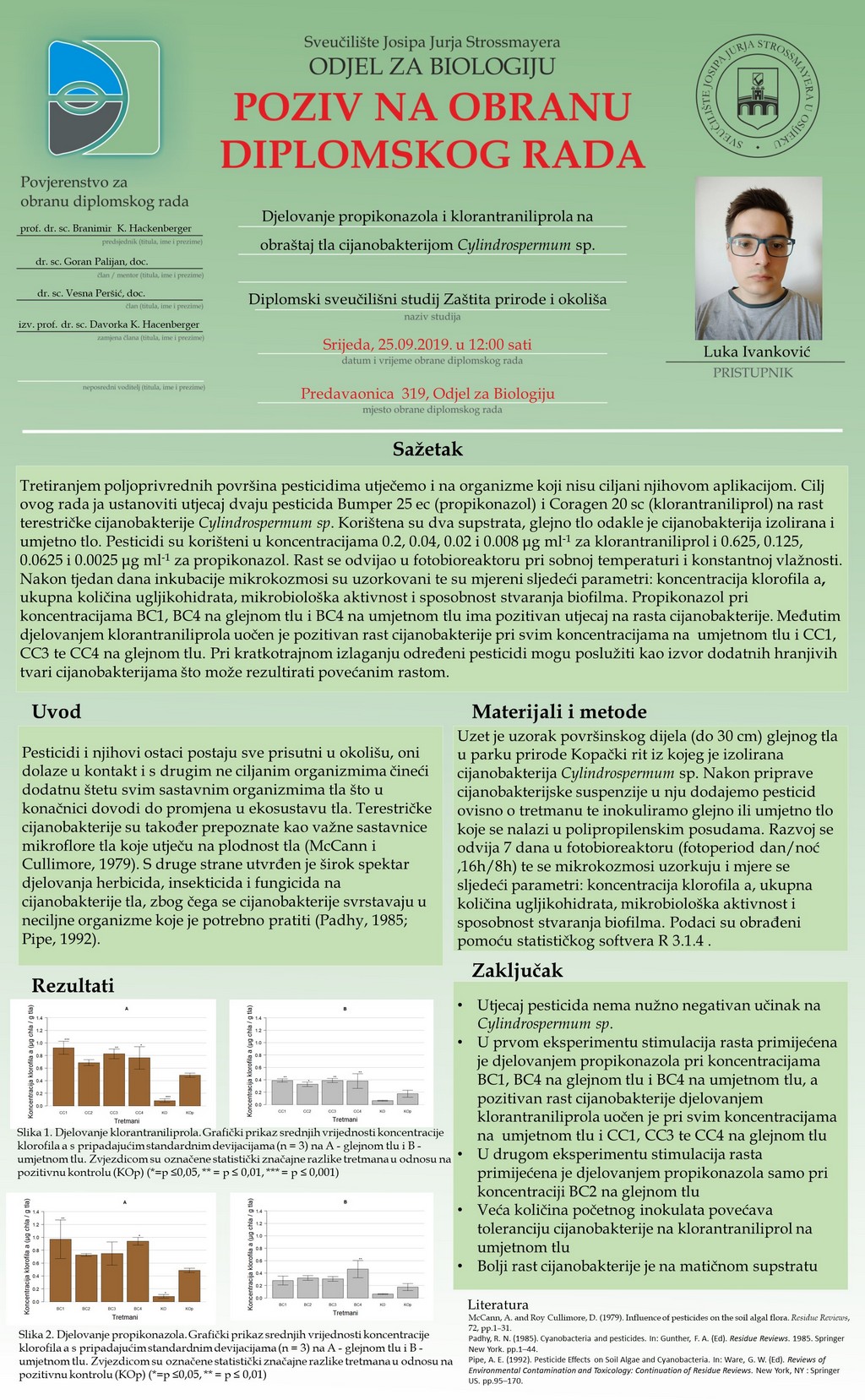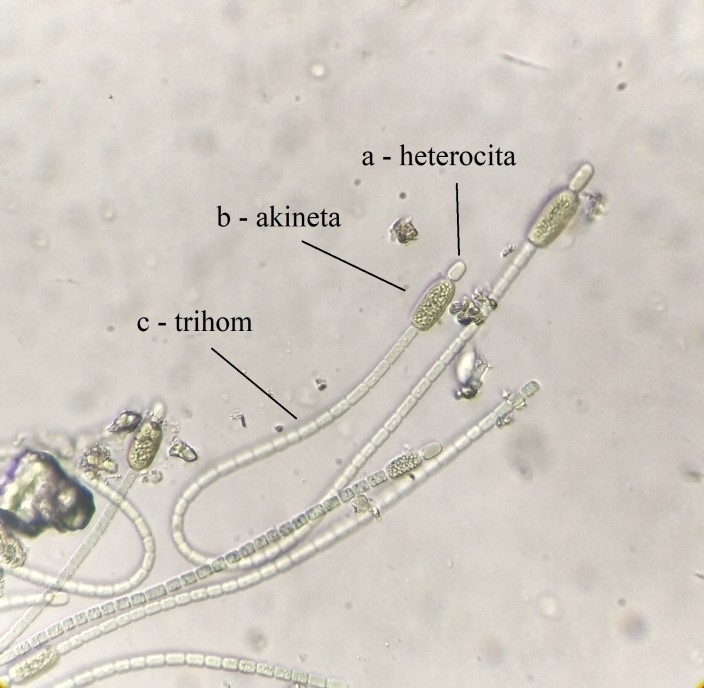Another Master thesis!
Student Luka Ivanković has successfully defended a master thesis titled: „The effects of propiconazole and chlorantraniliprole on terrestrial cyanobacterium Cylindrospermum sp.“. This thesis has been made at the Department of Biology, Subdepartment of Quantitative Ecology, within the DEFENSoil project.
Mentor: Assistant professor Goran Palijan, PhD
Short abstract: Pesticide treatment of agricultural land also affects organisms that are not targeted by their application. The aim of this study was to establish effects of two pesticides Bumper 25 ec (propiconazole) and Coragen 20 sc (chlorantraniliprol) on the growth of the terrestrial cyanobacteria Cylindrospermum sp. Bumper 25 ec is triazolic fungicid with active substance propiconazole and Coragen 20 sc is diamidic insecticid with active substance chlorantraniliprol. Two substrates were used, gley soil type from which the cyanobacteria was isolated and aritifical soil. The pesticides concentrations of 0.2, 0.04, 0.02 and 0.008 μg ml-1 for chlorantraniliprol and 0.625, 0.125, 0.0625 and 0.0025 μg ml-1 for propiconazole was used. Growth was carried out in photobioreactor at room temperature and at constant humidity. After one week incubation microcosms were sampled and soil chlorophyll a concentration, total carbohydrates, microbial activity and biofilm formation were measured. Propiconazole at concentrations of BC1, BC4 on gley soil and BC4 on artificial soil has a positive effect on the growth of cyanobacteria. However, application of chlorantraniliprol showed a positive growth of cyanobacteria at all concentrations on artificial soil and CC1, CC3 and CC4 on the gley soil. On short-term exposure, certain pesticides can serve as a source of additional nutrients to cyanobacteria, which can result in increased growth.



